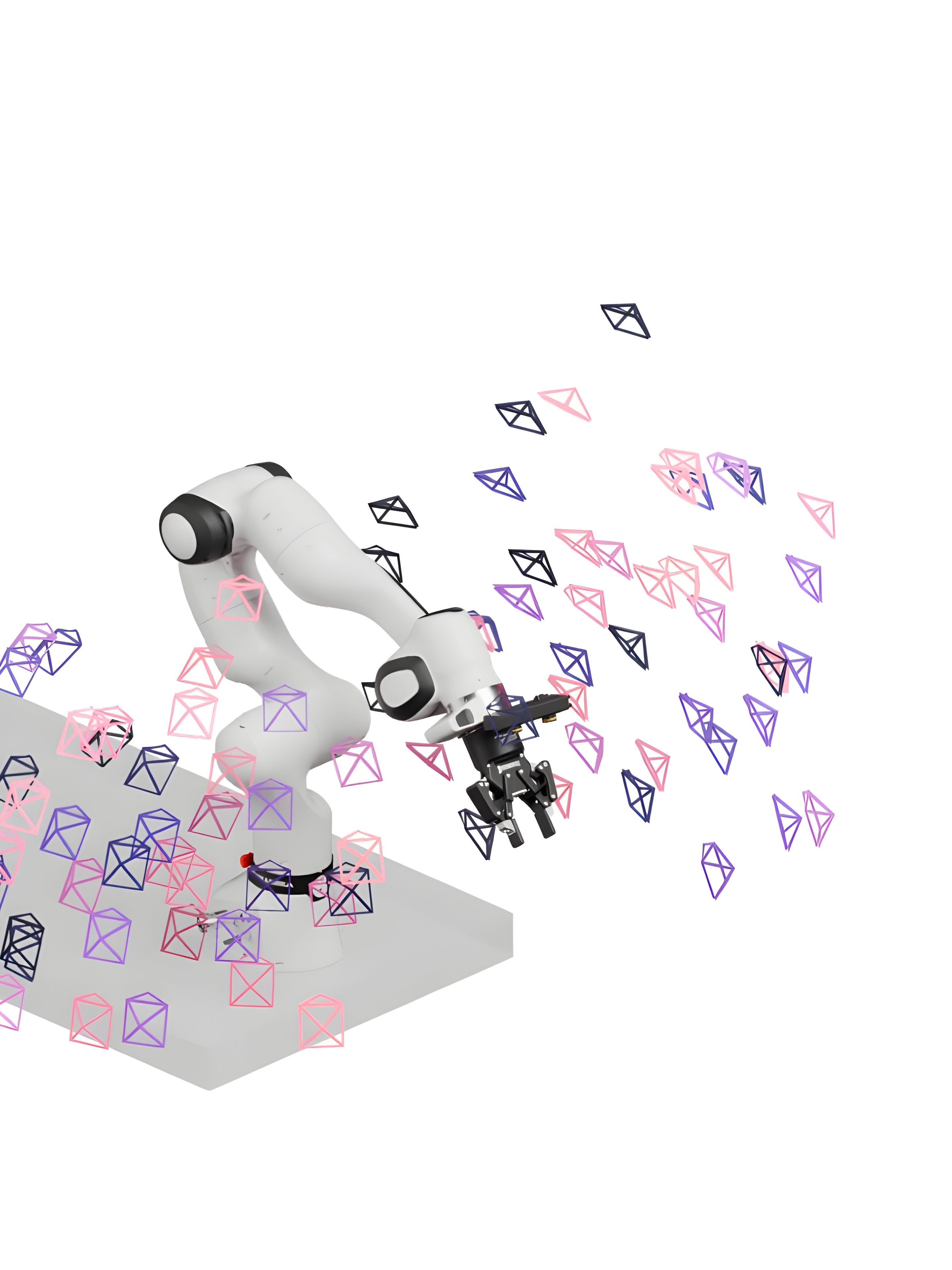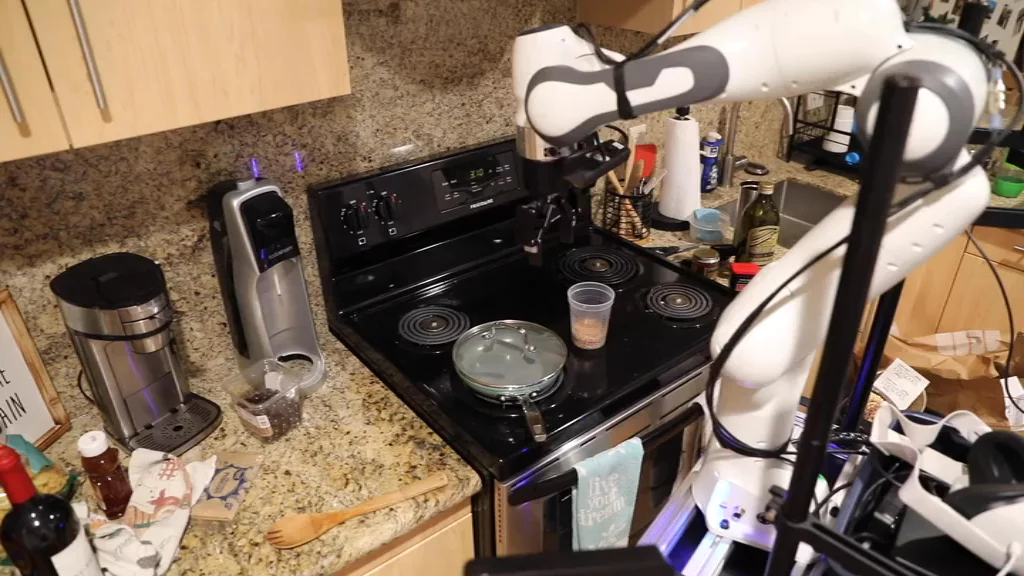The DROID (Distributed Robot Interaction Dataset) initiative represents one of the most ambitious robot manipulation data collection efforts to date, spanning 13 major academic institutions across North America, Asia, and Europe. Using a standardized hardware setup featuring Stereolabs ZED 2 and ZED Mini cameras, the team successfully collected 76,000 demonstration trajectories totaling 350 hours of robot interaction data across 564 unique scenes and 86 distinct tasks.

This case study explores how Stereolabs' advanced perception systems helped overcome critical technical challenges in data collection, storage optimization, and depth estimation—enabling the creation of a dataset that's pushing the boundaries of real-world robot manipulation capabilities.

DROID in action
Prior to DROID, even the most advanced robot manipulation systems struggled with generalization. The fundamental problem was data—or rather, the lack of sufficiently diverse, high-quality data collected outside controlled laboratory environments.
The Core Challenges:
"Before DROID, robot manipulation research was mostly stuck in simplified lab settings. We wanted to change that—to build a dataset that would let researchers take a robot, place it in a brand-new home, and see it do something useful" explains Alexander Khazatsky, CTO of CollectedAI.
After evaluating several vision systems, including Intel RealSense cameras, the team turned to Stereolabs for a solution.

The DROID team implemented a standardized hardware configuration across all 13 participating institutions, featuring:
The Stereolabs ZED SDK provided critical functionality that transformed how the team approached data collection and processing.
Key Implementation Advantages:
The integration of Stereolabs ZED cameras and SDK into the DROID platform yielded significant quantitative and qualitative benefits that transformed the project's scope and capabilities.
Quantitative Impacts:
Qualitative Impacts:
The integration of Stereolabs technology delivered substantial intangible benefits that enhanced the project's overall success:
"I choose ZED cameras because I want hardware I can rely on. That peace of mind has real value to me and my team. ZED delivers rugged, durable cameras—which matters during real-world deployment—paired with a stable, well-maintained SDK and excellent customer support. It's a rare combination that makes day-to-day work smoother and lets us move faster and more confidently."
— Alexander Khazatsky, CTO, CollectedAI
Unexpected Benefits:
Beyond the core challenges that Stereolabs helped solve, the team discovered additional advantages:
Future-Proof Dataset: The ability to reprocess data with improved stereo-to-depth models as technology advances maintains the dataset's long-term value

The DROID team evaluated several alternatives before settling on Stereolabs as their perception partner of choice:
"We tried various Intel RealSense models and considered other stereo alternatives. ZED consistently outperformed in reliability, API quality, and support."
— Alexander Khazatsky, CTO, CollectedAI
Key differentiators included:
The success of the DROID project demonstrates the critical importance of high-quality perception systems in advancing robotic capabilities. For projects pushing the boundaries of robotic manipulation, the quality of visual data remains a fundamental requirement.
"Robotics is fundamentally data-hungry, and long-term success depends on high-quality, forward-compatible data. Innovation in 3D vision is constant, so we prioritize methods that give us flexibility to adapt to future progress. That's why we care so much about storing data in ways that remain useful years down the line." — Alexander Khazatsky, CTO, CollectedAI
The collaboration between the DROID initiative and Stereolabs exemplifies how cutting-edge 3D vision technology can solve complex perception challenges while creating new possibilities in robotics research.
Looking ahead, the partnership continues: "At CollectedAI, we're developing large-scale, experimental data collection systems—and ZED cameras will continue to be a trusted component in that pipeline."
The DROID initiative's success hinged on overcoming significant technical challenges in data collection and management. By implementing Stereolabs ZED cameras and leveraging their advanced SDK, the team created one of the most comprehensive robot manipulation datasets ever assembled—one that's actively advancing the field's capabilities in real-world settings.
For robotics researchers and companies facing similar challenges with large-scale data collection, depth estimation, or storage optimization, Stereolabs' solutions offer proven capabilities that outperform alternatives while providing the reliability and support necessary for mission-critical applications.
Click here for more information about the DROID dataset.